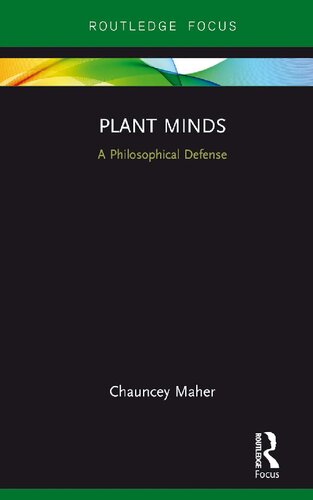

Most ebook files are in PDF format, so you can easily read them using various software such as Foxit Reader or directly on the Google Chrome browser.
Some ebook files are released by publishers in other formats such as .awz, .mobi, .epub, .fb2, etc. You may need to install specific software to read these formats on mobile/PC, such as Calibre.
Please read the tutorial at this link: https://ebookbell.com/faq
We offer FREE conversion to the popular formats you request; however, this may take some time. Therefore, right after payment, please email us, and we will try to provide the service as quickly as possible.
For some exceptional file formats or broken links (if any), please refrain from opening any disputes. Instead, email us first, and we will try to assist within a maximum of 6 hours.
EbookBell Team

4.0
56 reviewsThe idea that plants have minds can sound improbable, but some widely respected contemporary scientists and philosophers find it plausible. It turns out to be rather tricky to vindicate the presumption that plants do not have minds, for doing so requires getting clear about what plants can do and what exactly a mind is.
By connecting the most compelling empirical work on plant behavior with philosophical reflection on the concept of minds, Plant Minds aims to help non-experts begin to think clearly about whether plants have minds. Relying on current consensus ideas about minds and plants, Chauncey Maher first presents the best case for thinking that plants do not have minds. Along the way, however, he unearths an idea at the root of that case, the idea that having a mind requires the capacity to represent the world. In the last chapter, he defends a relatively new and insightful theory of mind that rejects that assumption, making room for the possibility that plants do have minds, primarily because they are alive.